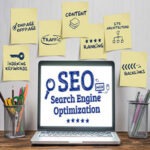In the competitive world of e-commerce, optimizing your WooCommerce store for search engines is crucial to driving organic traffic and achieving success. An essential aspect of this optimization process is keyword research and optimization. While AI may not be directly involved in keyword research, it can play a significant role in enhancing your overall keyword optimization strategy. In this article, we will explore how you can leverage effective keyword optimization techniques to boost the visibility and performance of your WooCommerce store.
Understanding Keyword Optimization for WooCommerce
Keyword optimization is the process of strategically incorporating relevant keywords into your website content to improve search engine rankings and attract targeted traffic. By targeting the right keywords, you can ensure that your WooCommerce store appears in search results when potential customers are actively seeking products or information related to your business.
Conducting Keyword Research
Identifying Relevant Keywords
To start your keyword optimization journey, begin by identifying keywords that are relevant to your WooCommerce store and align with your target audience’s search intent. Think about the products or services you offer and the specific terms or phrases potential customers may use to find them.
Expanding Your Keyword List
Utilize SEO tools like Ahrefs and SemRush to expand your keyword list. These tools provide valuable insights into search volume, competition levels, and related keywords. By exploring long-tail keywords (specific, niche phrases), you can target a more focused audience and potentially reduce competition.
Optimizing On-Page Elements
Optimizing on-page elements is critical if you want your WooCommerce store to rank in search engines.
Meta Tags
Optimize your meta title tags and meta descriptions to include relevant keywords. These elements provide concise summaries of your webpage content and play a vital role in search engine ranking and click-through rates.
URL Structure
Incorporate keywords into your page URLs to make them more descriptive and search engine-friendly. For example, instead of “www.example.com/product123,” use “www.example.com/product-category/product-name” to include keywords and provide context.
Heading Tags
Use heading tags (H1, H2, H3, etc.) to structure your content and highlight important sections. Include keywords naturally within these headings to provide search engines with valuable information about your content.
Crafting High-Quality and Relevant Content
Content Relevance
Develop well-written, informative, and relevant content that addresses the needs and interests of your target audience. Incorporate keywords naturally throughout the content to improve its visibility in search results.
User Experience
Ensure that your content is easy to read, well-organized, and mobile-friendly. A positive user experience encourages visitors to spend more time on your WooCommerce store, increasing the likelihood of conversions.
Monitoring and Fine-Tuning
Track Performance
Regularly monitor your keyword rankings and website analytics to assess the effectiveness of your optimization efforts. Tools like Google Analytics provide valuable data on organic traffic, bounce rates, and conversions.
Refine Your Strategy
Based on the insights gained from monitoring, make data-driven decisions to refine your keyword optimization strategy. Continually adapt and optimize your keywords and content to stay relevant and competitive in the ever-evolving digital landscape.
Leveraging AI for Content Creation and Optimization
AI technology can be a valuable tool in the process of writing and optimizing content for your WooCommerce store. This section will explore how AI can assist you in generating engaging and persuasive copy while ensuring it is optimized for search engines and your target audience.
AI-Powered Content Generation
AI powered by advanced natural language processing algorithms can assist in generating high-quality content. By providing relevant input and prompts, you can obtain AI-generated product descriptions, blog posts, and landing page content that align with your brand voice and resonate with your audience. This can save you time and resources in the content creation process.
SEO Optimization Suggestions
AI tools can also assist in optimizing your content for search engines. By providing specific keywords or phrases, the AI can generate optimized content by seamlessly incorporating these keywords in a natural and coherent manner. This ensures that your content ranks well in search engine results and attracts relevant organic traffic to your WooCommerce store.
Improving Readability and Engagement
One of the key factors in keeping visitors on your WooCommerce store is the quality of your content. AI can help in enhancing the readability and engagement of your content. AI tools can analyze your existing content and provide suggestions to improve sentence structure, grammar, and overall coherence. This ensures that your content is clear, concise, and easy to understand for your audience.
Aiding in Keyword Research
While AI tools like Ahrefs and SemRush are commonly used for keyword research, AI can provide additional insights and suggestions. By providing detailed information about your target audience, products, and industry, you can gain alternative keyword ideas and uncover hidden opportunities that traditional SEO tools may have missed.
Summary
AI tools offer powerful capabilities in content creation and optimization for your WooCommerce store. By leveraging AI technology, you can generate engaging and optimized content, improve readability and user engagement, and obtain advanced keyword insights. Integrating AI into your content strategy can save time, enhance your SEO efforts, and ultimately drive better results for your WooCommerce store. Remember to combine the strengths of AI with human expertise to ensure your content aligns with your brand and effectively communicates your message to your target audience.











Leave a Reply